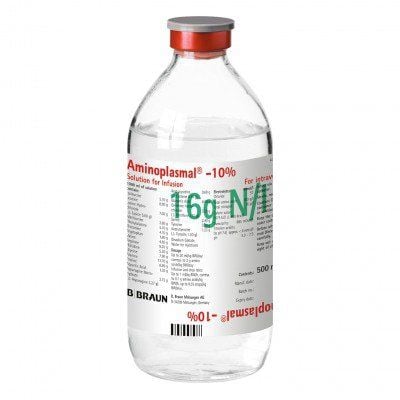This is an automatically translated article.
Post by Doctor Ho Thi Anh Thu - Neonatologist - Neonatology Department at Vinmec Nha Trang International General Hospital
During childhood, children gain weight and grow faster than at any other time in life. However, some babies don't gain weight at a normal rate, which may be related to genes, premature birth or nutritional deficiencies, or a variety of reasons. It is important to recognize and treat children who are not gaining weight normally as it could be a sign of malnutrition or an underlying medical condition that needs to be treated.
1. What is slow weight gain?
Slow weight gain is defined as a child gaining weight at a slower rate than other children of the same age and sex. The "normal" weight range is based on the weights of thousands of children. Standard growth charts published by the Centers for Disease Control and Prevention (CDC) and the World Health Organization (WHO) these charts are available for men and women and are appropriate for all races and nation.
For children under two years of age, use WHO growth standards. For children two years of age and older, use the CDC growth chart. Children with genetic syndromes may benefit from special growth charts. For example, a growth chart for children with Down syndrome.
Weight gain often follows a predictable process from infancy to adolescence. However, some babies don't gain normal weight from birth, while others gain normal weight for a while, then slow or stop gaining weight. Weight gain usually slows down before a child slows down or stops growing in height. A child is said to have poor weight gain if the child is not growing at the expected rate for his age and sex.
2. Causes of slow weight gain
Baby slow weight gain is not a disease, but a symptom, there are many possible causes. Causes of slow weight gain include:
Not consuming enough energy (in calories) or not consuming the right proteins (proteins), fats and carbohydrates (flours). Not absorbing adequate amounts of nutrients Higher-than-normal energy needs Slow weight gain can be caused by medical conditions, developmental or behavioral disorders, or lack of food. Common causes of poor weight gain at each age are described below:
Before birth - Small for age at birth (known as intrauterine growth retardation), preterm delivery, prenatal infections , birth defects, exposure to growth-restricting drugs/toxins during pregnancy (eg, anticonvulsants, alcohol, tobacco smoke, caffeine, narcotics).

Bé chậm tăng cân có thể do sinh non gây ra
Newborn to six months - Poor quality of feedings (whether breastfed or bottle fed), incorrect formulation, breastfeeding problems, insufficient number of feedings, poor food interactions (eg, baby spits up or spits up during feedings and caregivers think the baby is full) neglect, birth defects that affect the baby's ability to eat or digest normally, little feeding (sometimes related to undernourishment, poverty, or failure to understand the infant's dietary needs); milk protein intolerance, baby's mouth/throat problems that make it difficult to suck or swallow (eg cleft lip and palate), medical condition that affects nutrient absorption (cystic fibrosis), medical condition increased caloric intake (congenital heart disease), gastroesophageal reflux disease. 7 to 12 months - Feeding problems (eg, struggles between baby and caregivers over what to eat, problems with the child's mouth that make it difficult for the child to adapt to chewing or swallowing food rough, slow to eat rough, refuses to eat new foods and caregivers don't feed children with intestinal parasites, food allergies Over 12 months - Behavior (eg, a picky or picky eater or children are easily distracted during meals), family stress (divorce, parent loss of job, new sibling, death of a loved one, etc.); social factors (feeding has little to do with feeding). to fear of overeating, limited food choices, poverty), sensory-based eating disorders in children with developmental disorders (eg, autism spectrum disorder), swallowing dysfunction, drinking too much milk or juice, not getting enough food or the right combination of healthy foods, celiac disease, food allergies
3. Diagnosis of slow weight gain
If an infant or child with anorexia slows down or stops gaining weight, it is important to try to identify and treat the underlying cause. The first step is a complete medical history and physical examination. Most children will not require blood tests or imaging tests, although testing may be recommended in certain cases.
Caregivers should pay attention if the child has any of the following:
Vomiting, diarrhea or chewing (swallowing, regurgitating, then swallowing again). Avoid foods with a particular texture (e.g., hard or crunchy), which can be a sign of chewing/swallowing problems or loss of appetite. Avoid foods or groups of foods (eg, dairy, wheat), which can be a sign of a food allergy or intolerance. Drink large amounts of low-calorie liquids, low-fat milk, or juice. Drinking these beverages can prevent your child from eating solid, high-calorie foods. Drinking a lot of whole milk, can lead to iron deficiency anemia. Follow a diet (e.g. vegetarian, lactose-free, wheat-free, or gluten-free).

Bé chậm tăng cân có thể gặp tình trạng nôn trớ
Caregivers should also be aware that they have eliminated foods from the child's diet due to concerns about the effects of these foods (eg, colic, diarrhea, "hyperactivity").
The doctor may also ask about the child's family, including those living in day care, if there have been recent changes or stressors (e.g. divorce, illness, death, new siblings). ), or if anyone in the household has a mental health problem or illness, including a history of feeding/eating disorders. The doctor may also ask about food supplies or food shortages (for example, if someone in the family goes hungry because they don't have enough money to eat). While these questions can be difficult to answer, it's important to be honest.
In some cases, the doctor will ask the caregiver to keep a record of everything the child eats and drinks for several days. This can help determine if your child is eating the right amount and variety of foods. In addition, parents should also note that, in addition to maintaining a complete lifestyle and diet, children need to add the necessary micronutrients: Zinc, selenium, chromium, vitamins B1 and B6, Ginger , acerola fruit extract (vitamin C),... to improve taste, eat well, achieve standard height and weight, good immune system, enhance resistance to less sickness and less problems Digest. The improvement of symptoms can take place for a long time, so it is recommended that parents be calm and persistent when supplementing with nutrients for their children, either through food or functional foods. Should choose types of natural origin that are easy to absorb, do not let children use many types at the same time or continuously change types.
Currently, Vinmec International General Hospital is one of the few hospitals with a full range of pediatric specialties, able to perform general examinations in conjunction with a nutritionist to help build a menu for each patient. children, advice on living regimens and treatment directions suitable for each child's condition. All examination procedures at Vinmec are always performed by a team of doctors and experts with many years of experience. Therefore, parents can be assured of the quality of medical care at Vinmec.














